
The Vaudeville Theatre is a West End theatre on the Strand in the City of Westminster. As the name suggests, the theatre held mostly vaudeville shows and musical revues in its early days. It opened in 1870 and was rebuilt twice, although each new building retained elements of the previous structure. The current building opened in 1926, and the capacity is now 690 seats. Rare thunder drum and lightning sheets, together with other early stage mechanisms, survive in the theatre.
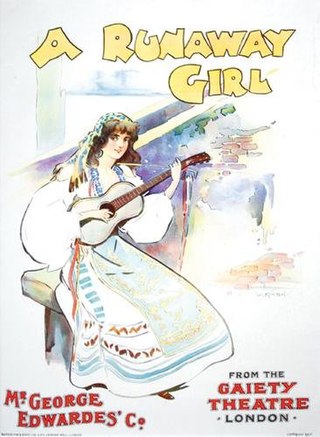
A Runaway Girl is an Edwardian musical comedy in two acts written in 1898 by Seymour Hicks and Harry Nicholls. The composer was Ivan Caryll, with additional music by Lionel Monckton and lyrics by Aubrey Hopwood and Harry Greenbank. It was produced by George Edwardes at the Gaiety Theatre, London, opening on 21 May 1898 and ran for a very successful 593 performances. It starred Hicks's wife, Ellaline Terriss and the comic actor Edmund Payne.

Sir Edward Seymour Hicks, better known as Seymour Hicks, was a British actor, music hall performer, playwright, actor-manager and producer. He became known, early in his career, for writing, starring in and producing Edwardian musical comedy, often together with his famous wife, Ellaline Terriss. His most famous acting role was that of Ebenezer Scrooge in Charles Dickens's A Christmas Carol.

The Shop Girl was an Edwardian musical comedy in two acts written by Henry J. W. Dam, with lyrics by Dam and Adrian Ross and music by Ivan Caryll, and additional numbers by Lionel Monckton and Ross. It premiered at the Gaiety Theatre in London in 1894 and ran for an extremely successful 546 performances. Its cast included Seymour Hicks, George Grossmith, Jr., Arthur Williams, Edmund Payne, and Ellaline Terriss. It soon played in New York and was successfully revived in London in 1920.
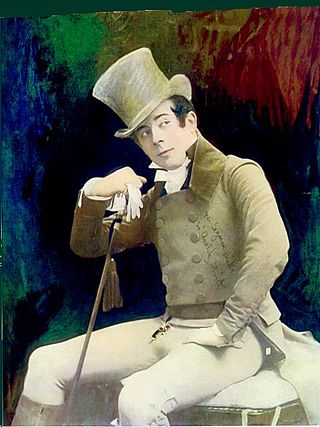
Quality Street is a comedy in four acts by J. M. Barrie, written before his more famous work Peter Pan. The story is about two sisters who start a school "for genteel children".

The Catch of the Season is an Edwardian musical comedy by Seymour Hicks and Cosmo Hamilton, with music by Herbert Haines and Evelyn Baker and lyrics by Charles H. Taylor, based on the fairy tale Cinderella. A debutante is engaged to a young aristocrat but loves a page.

Mary Ellaline Terriss, Lady Hicks, known professionally as Ellaline Terriss, was a popular British actress and singer, best known for her performances in Edwardian musical comedies. She met and married the actor-producer Seymour Hicks in 1893, and the two collaborated on many projects for the stage and screen.

The Beauty of Bath is a musical comedy with a book by Seymour Hicks and Cosmo Hamilton, lyrics by C. H. Taylor and music by Herbert Haines; additional songs were provided by Jerome Kern, F. Clifford Harris (lyrics) and P. G. Wodehouse (lyrics). Based loosely on the play David Garrick, the story concerns a young woman from a noble family, who falls in love with an actor. She then meets a sailor who appears identical to the actor and mistakes him for the latter. Her father objects to a marriage with the actor, but when it turns out that she really loves the sailor, all objections fall away.

Edwardian musical comedy was a form of British musical theatre that extended beyond the reign of King Edward VII in both directions, beginning in the early 1890s, when the Gilbert and Sullivan operas' dominance had ended, until the rise of the American musicals by Jerome Kern, Rodgers and Hart, George Gershwin and Cole Porter following the First World War.
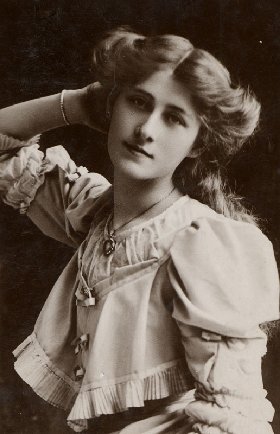
Phyllis Dare was an English actress and singer famous for her performances in Edwardian musical comedy and other musical theatre in the first half of the 20th century.

Zena Dare was an English actress and singer who was famous for her performances in Edwardian musical comedy and other musical theatre and comedic plays in the first half of the 20th century.
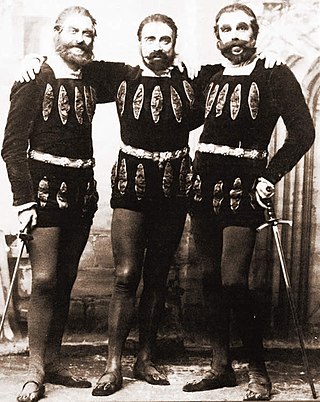
William Lugg was an English actor and singer of the late Victorian and Edwardian eras. He had a long stage career beginning with roles in several Gilbert and Sullivan operas and continuing for over four decades in drama, comedy and musical theatre. Later in his career, he appeared in nine silent films in the early years of British cinema.
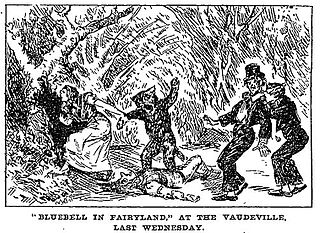
Bluebell in Fairyland is a Christmas-season children's entertainment described as "a musical dream play", in two acts, with a book by Seymour Hicks, lyrics by Aubrey Hopwood and Charles H. Taylor, and music by Walter Slaughter. It was produced by Charles Frohman. The creators sought to distinguish the work from a Christmas pantomime. The story concerns a flower girl, Bluebell, who on Christmas Eve goes to fairyland in search of the "Sleeping King", seeking to restore him to his throne, which has been usurped by the "Reigning King".

The Gay Gordons is a 1907 Edwardian musical comedy with a book by Seymour Hicks, music by Guy Jones and lyrics by Arthur Wimperis, C. H. Bovill, Henry Hamilton and P. G. Wodehouse, who wrote the lyrics to "Now That My Ship's Come Home" and "You, You, You". The title refers to both the Clan Gordon and the famed Scottish regiment the Gordon Highlanders as the plot involves the heir to the clan and a soldier from the regiment.

The Cherry Girl was an Edwardian musical comedy in two acts based on a book by Seymour Hicks with lyrics by Aubrey Hopwood and music by Ivan Caryll. It opened at the Vaudeville Theatre in London's West End on 21 December 1903. The original cast included Hicks, Constance Hyem, Courtice Pounds and Hicks's wife, Ellaline Terriss. From August 1904, the play went on tour to the Theatre Royal in Glasgow and other British provincial theatres. The play was described as a "children's fairy play", and its story involves a prize to be given by a Fairy Queen for the creation of a statue.

Katie Seymour was a British Victorian burlesque and Edwardian musical comedy entertainer who was remembered primarily for her dancing. She was considered, if not the first, one of the first to perform a style of dance called the skirt dance. Seymour began in song and dance routines at a very young age and would go on to appear in a string of highly successful long-running musicals staged at London's Gaiety Theatre during the 1890s. She fell ill in 1903 while on a theatrical tour of British South Africa and died not long after her return voyage home.
Stanley Brett was a British musical comedy actor and comedian.

Leedham Bantock was a British singer, Edwardian musical comedy actor, early film director, dramatist and screenwriter. In 1912 he became the first actor to portray Father Christmas in film.

Aubrey Hopwood was a British lyricist of Edwardian musical comedy and a novelist and author of nonsense books for children. He co-wrote the lyrics for the musicals Alice in Wonderland (1886), A Runaway Girl (1898) and The Lucky Star (1899), among others.

Bertha Mary Willmott was a British actress, comedienne, singer and music hall performer.





















